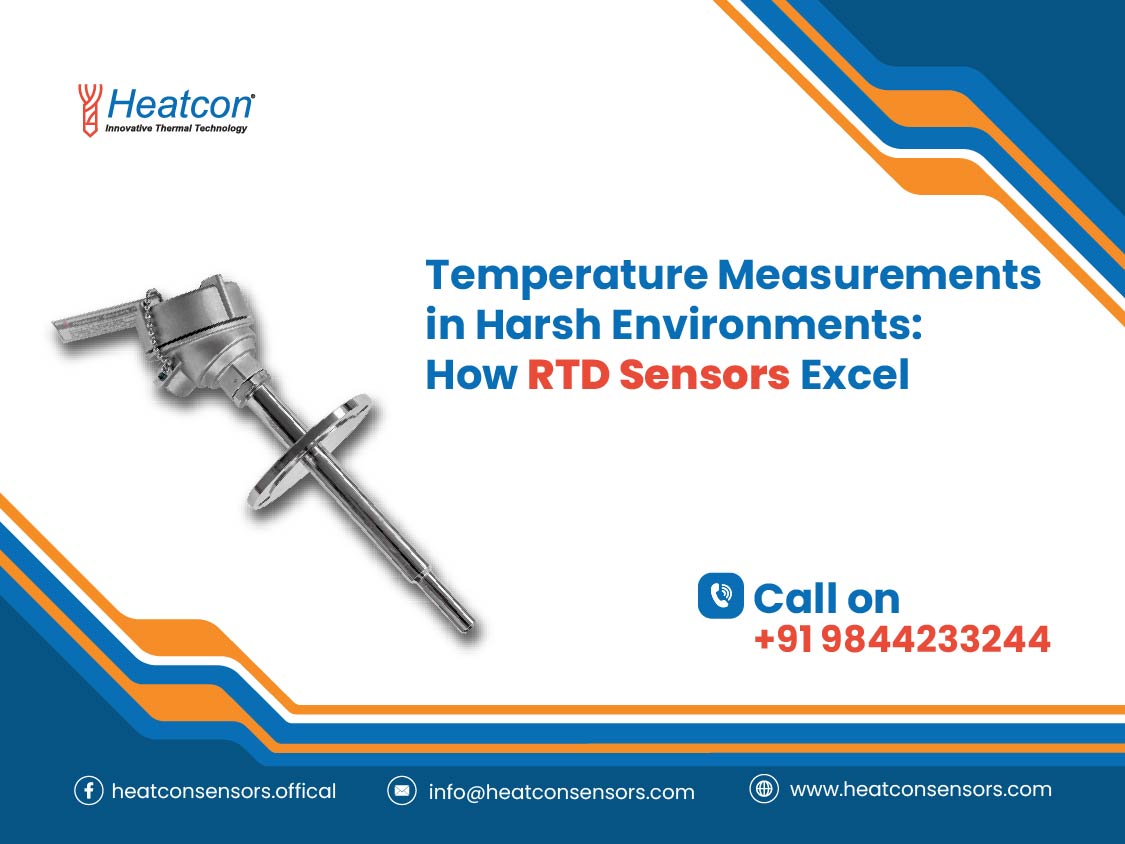Temperature measurements in harsh & challenging conditions happen to be a critical aspect of varied industries, including automotive, aerospace, oil & gas, and manufacturing. In these challenging environments, corrosive substances, high pressure, extreme temperatures, and other such harsh conditions are a common affair. At the same time, accurate temperature readings are needed to guarantee safety, maintain quality, and optimize these industrial processes. Among the many temperature measurement technologies available, RTD sensors (Resistance-Temperature-Detectors) stand out for their exceptional performance even in such harsh environments.
How RTD Sensors Excel in Harsh Environments?
RTD sensors rely on the principle of electrical resistance for measuring temperature variations. They contain a fine wire/thin film made from highly pure conductors, including platinum, encased in protective sheaths. As temperature tends to change, the conductor’s resistance also changes in quite a predictable manner, which allows accurate temperature readings to be obtained.
- One of the main reasons RTD sensors excel in harsh & challenging conditions is their robust construction. Most of these RTD sensors use platinum element. It is highly stable & resistant to oxidation & corrosion. This makes platinum ideal for extreme conditions. In addition, RTDs can even withstand high pressures & hard mechanical stresses, which ensures reliable operation even in harsh industrial environments.
- Another advantage of these RTD sensors is their high accuracy & good stability over a vast temperature range. Unlike other temperature sensors, like thermocouples, RTDs tend to provide highly linear output. This results in more accurate & precise temperature measurements. Such accuracy is helps in several industrial processes & applications. They are ideal where slight temperature variations can pose significant implications on product quality & process efficiency.
- Also, RTD sensors give excellent repeatability & long-term stability, which makes them ideal for continuous operations in harsh industrial settings without frequent needs for recalibration. Such reliability tends to decrease downtime & maintenance costs, thus contributing to overall operational efficiency.
- Additionally, these RTDs possess mechanical & thermal robustness. Manufactures design these with various configurations, which suit specific industrial application requirements. For instance, it is possible to insert sheathed RTD sensors directly into a process stream. One can also directly immerse them in liquids. Thin-film RTDs tend fit well in industrial applications having limited space. Such versatility of these RTDs makes them adaptable to a vast range of industrial processes & harsh conditions.
Conclusively, RTD sensors happen to be a wonderful selection for temperature measurements in harsh industrial conditions owing to their robust construction, stability, accuracy, & versatility. Whether you need to monitor temperatures in oil refineries, aerospace engines, or manufacturing processes, these RTDs tend to provide reliable & accurate data. This ensures safety, maintains quality, and optimizes operations. As most industries continue to push the boundaries of performance & efficiency, RTD sensors happen to be indispensable for temperature monitoring even in the most demanding conditions. Contact Heatcon Sensors to get the best range of these products.


